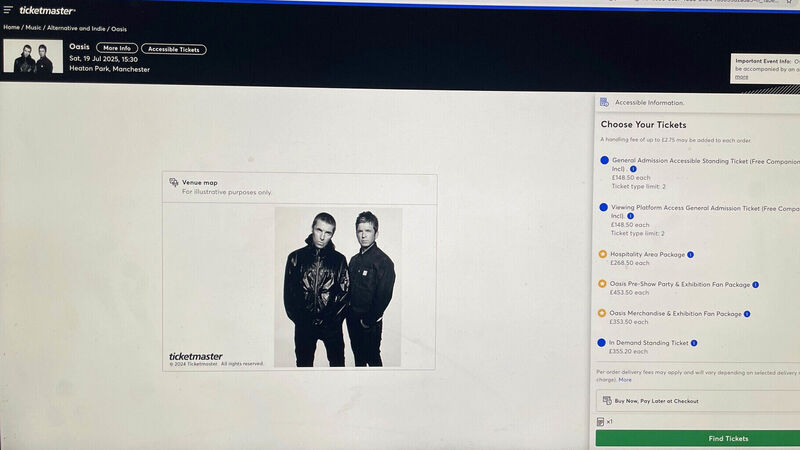The US is fighting to break up Ticketmaster — could Ireland do something similar?

Just this week, frustration towards Ticketmaster reached a boiling point when its controversial pricing system led to surge in the cost of Oasis tickets, which has once again prompted calls for a consumer watchdog probe.
This summer, Live Nation, the world’s largest event promoter and its Ticketmaster unit were hit with a consumer antitrust lawsuit after the US Government’s Department of Justice sued to break up the two major companies.
Supported by 30 state attorney generals, the case accused Live Nation of exercising monopoly control over the live events industry, threatening venues that work with competitors and blocking rivals from the market.














